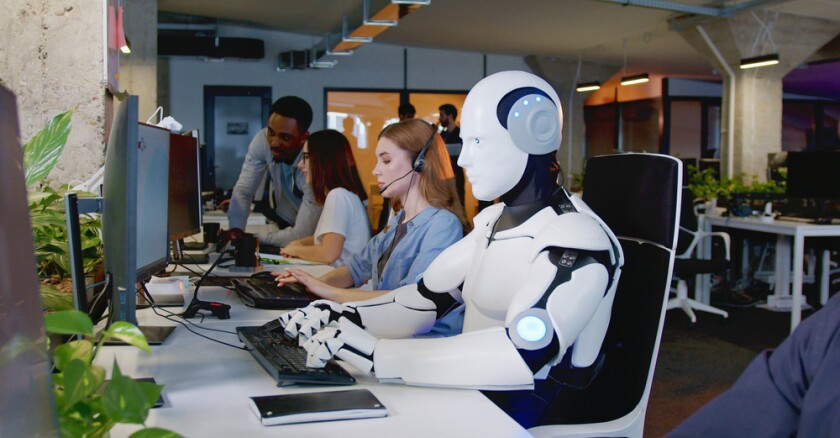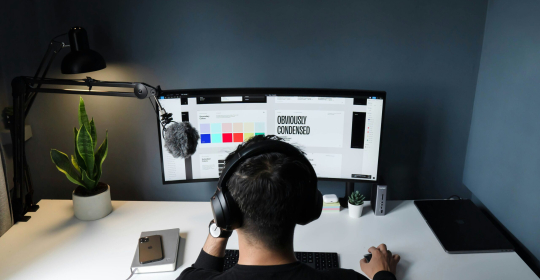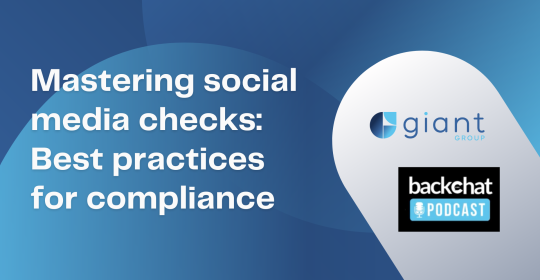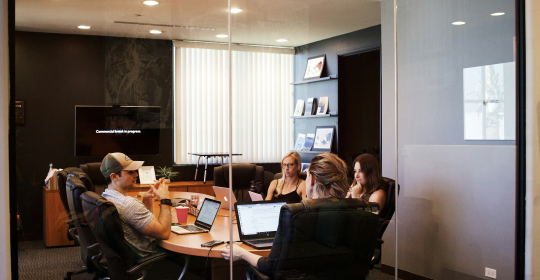- 91% of respondents would allow an AI avatar to perform tasks in a virtual meeting for them
- 27% of executive leaders would allow an AI avatar to make decisions on their behalf
- Concerns linger for 92%, with 44% worried that it could misrepresent their personality or communication style affecting their career progression
- For Gen Z in particular (46%), AI avatars in the workplace would make them want to meet people in person more
Leading global business travel management platform, TravelPerk, today released new research on attitudes towards the potential introduction of AI avatars in the UK workplace. Despite hesitations about the new technology, 91% said that they would be willing to allow an AI avatar to perform tasks in a meeting on their behalf.
These insights are based on global research commissioned by TravelPerk - of the 4,000 total business travellers who were surveyed, 1,000 were based in the United Kingdom.
UK employees prefer to assign admin-focused tasks in meetings to AI avatars, such as reminding them of deadlines (61%) or scheduling meetings (54%) which can then enable them to focus on more ‘human’ interactions. There is also some openness to letting avatars handle some ‘human’ interactions, such as delivering a presentation (29%) or even conducting an interview (14%).
Notably, executive leadership are more willing to do this than their junior colleagues, with 27% saying they would allow an AI avatar to make decisions for them in a meeting compared to 0% of entry level employees. UK employees were also much more reluctant than their international peers to have AI speak on their behalf in a meeting. For example, only 28% of Brits would allow an avatar to answer questions for them (based on pre-set guidelines or historical behaviour), compared to 44% in the US.
However, 92% have concerns about having their own AI avatar in the workplace. The most significant worry, raised by 44% of respondents, is that it could misrepresent their personality or communication style, leading to potential misunderstandings or damage to professional relationships. And despite perceived efficiency gains (40% said it would boost their productivity), only 27% believe the adoption of this technology would result in fewer working hours, while 21% were concerned it would limit their career growth opportunities.
"There is no question that AI is the future, innovative companies including us use it to automate manual tasks so that customer-facing teams can offer a better human experience. We’ve also harnessed the power of AI to build efficiencies throughout our business operations”, said Avi Meir, CEO and co-founder of TravelPerk.
“The hype around AI Avatars that it could replace human connection is worrying as I actually think the opposite is true - it should instead increase the need for real life interaction. The real challenge is to integrate AI technology in a way that complements, rather than competes with, the human connection.”
This craving for human connection remains clear, despite a willingness to give responsibility to AI avatars. 38% said doing so would make them more likely to meet people in person, and nearly a quarter (22%) of Gen Z respondents said it would make them go into the office more often.
“At TravelPerk we invest in in-real-life moments to foster trust, genuine connection and belonging within our employee community,” said Felicia Williams, VP of People at TravelPerk. “If you are a leader planning to introduce AI avatars into your workplace, my advice is that you invest time in ensuring your employees don’t feel threatened by it but instead view it as a really useful productivity-enhancing tool and not a human replacement.”
Her top tips for employees who might be nervous about the prospect of AI avatars are:
- AI avatars can never fully replace in-person professional interactions - Future proof your career by developing your softer skills such as critical thinking, communication, compassion and relationship building
- Stay curious and question AI outputs – As AI avatars become part of the workplace, don’t just accept them at face value. Think about how you can best interact with the tool, challenge the output, have an open mind and think about how it can complement your role and help you work smarter, not harder
- Use AI avatars to enhance, not replace your productivity – Approach AI avatars with an open mind and think about how they can make your work day more efficient. Use the technology to focus more on menial tasks that then enable you to focus on more joyful, strategic and creative tasks that drive value in your role.






